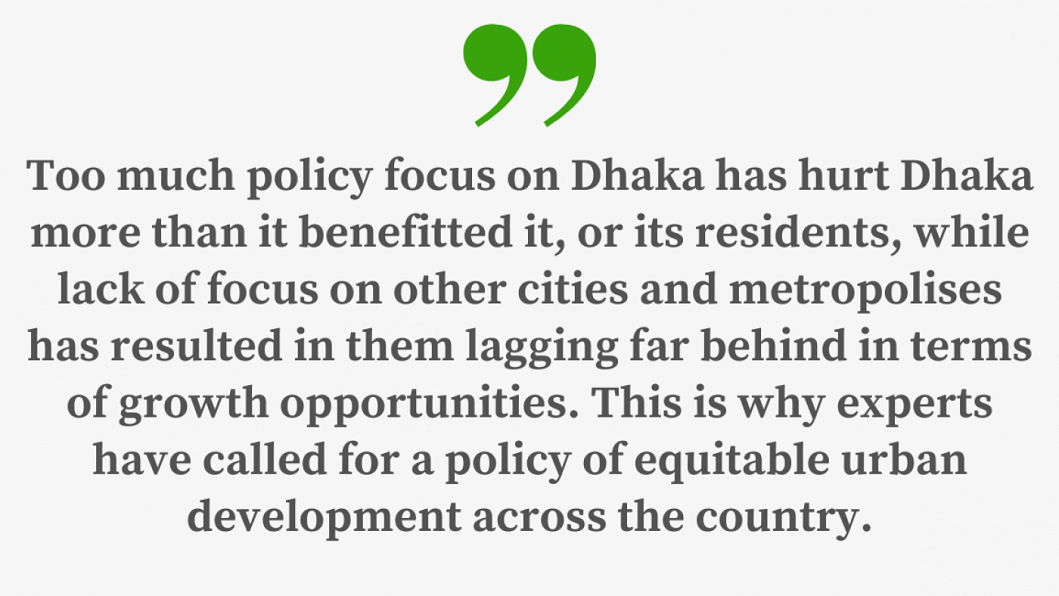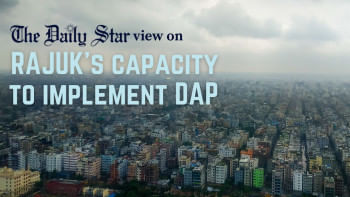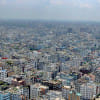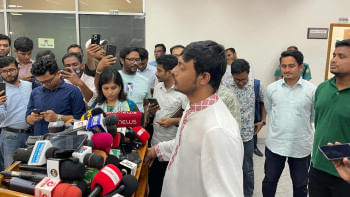All cities need a DAP of their own

Not long ago, we commented on the government's plan to establish five new development authorities in Sylhet, Payra, Rangpur, Barishal and Mymensingh. Already, there are a number of similar development authorities – in Dhaka, Cox's Bazar, Khulna, Rajshahi, Gazipur, and Chattogram. What's common to these region-specific development agencies is their lack of effect, as they are hamstrung by manpower shortage, wasteful or unaccountable spending, lack of initiative to uphold their mandate, non-cooperation from other government departments, etc. Clearly, setting up new agencies without fixing these institutional challenges runs the risk of making them similarly ineffective. Is more of Rajuk what Bangladesh needs at this moment?
Experts at a recent roundtable covered by Prothom Alo have raised an equally important question: Is more of Dhaka-focused development good for the future of Dhaka and, by extension, Bangladesh? Clearly, it is not. Dhaka has become a colossal primate city, larger than the next three big cities combined. Yet, we continue to keep our urban policies centred on Dhaka that has done little to make it liveable. This Dhaka-centrism has hurt Dhaka more than it benefitted it, or its residents, while lack of focus on other cities and metropolises has resulted in them lagging behind in terms of growth opportunities. This is why experts have called for a policy of equitable urban development across the country, one that will take some of the pressure off the capital, and offer all other regions equal access to economic and administrative opportunities, civic amenities, quality healthcare and education, etc.

With the fallout of climate change being felt across the coast, this is all the more important. We need to prepare our cities to accommodate the growing number of climate refugees so that their burden doesn't fall disproportionately on Dhaka. Bangladesh is going through a rapid change, a deeply unsustainable urbanisation process that makes any future planning difficult. But we must try. The recently unveiled Detailed Area Plan (DAP) for Dhaka has been criticised by environmental and urban experts for not reflecting the need for the best use of available spaces and resources, and it doesn't help that a clueless and, frankly, rudderless Rajuk is in charge of moving the needle on this front.
As one expert has said at the roundtable, we need a DAP for each (mid-sized) city, and properly staffed and motivated agencies in charge of their development. Only then will the country's development become equitable and sustainable, its benefits reaching every citizen. As well as addressing housing and other liveability issues, such policies must preserve what remains of our agricultural lands for the sake of our present and future food safety. They must allow for more playgrounds, open spaces, and schools within walking distances, and for villages to coexist with equal importance. And all initiatives must be part of a national urban policy, which is yet to be formulated, for better coordination and more balanced development. Otherwise, the government's Vision 2041 will remain only in words.


 For all latest news, follow The Daily Star's Google News channel.
For all latest news, follow The Daily Star's Google News channel. 






Comments